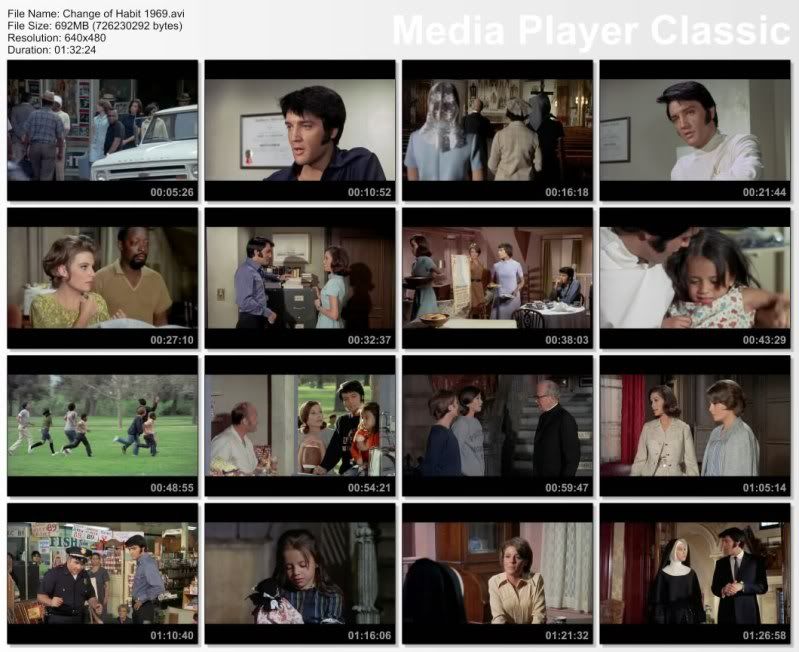January 21, 1970
Universal
Comedy, Drama, Romance, Musical
VHS
B-
Welcome to the '70s, sort of. Obviously, this movie was made at the tail end of the '60s although released at the dawn of the next decade, and movies wouldn't really stop feeling '60sish till I'd say '73. Nonetheless, the punning title does indicate a shift, not just for Mary Tyler Moore and her two colleagues working as undercover nuns in the ghetto/barrio (more on ethnicity below), but also for Elvis, who, yes, sings four songs but does play a Vietnam vet and a doctor. The movie is of course laughably dated in how it addresses serious issues, including autism, but there is a good movie buried inside this bad one. There are too many genres, and too many writers (five), so it probably was not very good even at the time, but it is an interesting period piece.
Yes, the way that sex and race are handled are among the worst aspects. While there's an attempted rape (of MTM) late in the film, Elvis makes a tasteless rape joke early on. Another of the nuns, Sister Barbara (the activist one who says "groovy" and exchanges peace-sign fingers with a young priest), wears her dress off the shoulder to get neighborhood men to help her move furniture, and it looks like it's going to turn into a gang rape scene. More benignly, a 17-year-old girl lusts after Elvis, who turns her down with gentle humor. And, yes, this is the Elvis/nun romance movie, although that aspect isn't as tasteless as it sounds. (They never kiss, but they do touch a few times, as when he teaches her to play the guitar.) The open ending is tasteless, in a funny way, as the camera (offering Sister Michelle's POV) goes back and forth between The King and the King of Kings.
As for issues of race, Latinos and Negroes (I think those are the right period terms for the mainstream, correct me if I'm wrong) are presented both stereotypically and as overlapping groups. The filmmakers never seem clear what the neighborhood's ethnic mix is, other than somewhat Catholic. Interestingly, the main villains are white. (The Hispanic rapist is presented as mentally ill and treated surprisingly sympathetically, although his attack is also taken seriously, if not seriously enough to press charges.) The white Catholic characters are a mix of good and judgmental. The most interesting scene that addresses race is marred by unintentionally hilarious dialogue, where two Black radicals ironically tell Sister Irene she "ain't no sister." One of them says that around there, you're either part of the problem or part of the solution, and the other adds "And we have a feeling you're neither." She replies, "I'm a Negro, I think that's pretty obvious."
A very late '60s film. Ed Asner shows up as a reasonable, liberal policeman, but unfortunately he doesn't get any scenes with his soon to be TV costar. As for Elvis, he was done with acting after this, and he'd be dead before the '70s were over.
Regis Toomey, who plays Father Gibbons, was Sanders in His Girl Friday and was 71 at this point but far from retirement. Timothy Carey, who was South Dakota Slim in a couple AIP Beach Party movies, is the Ajax Market manager. Robert Emhardt was head of a corporation in Where Were You When the Lights Went Out? and he plays a more sinister "fat cat" here, as the "Banker" exploiting the poor. Araceli Rey, who plays the elderly protesting Señora Gavilan, was the Italian cleaning lady in The Love God? Darlene Love sang in that movie as well as this one. Seventy-four-year-old Ruth McDevitt was Miss Keezy in that movie and plays Lily here.
 |
| Some of the kaleiodoscopic experience that this movie is |